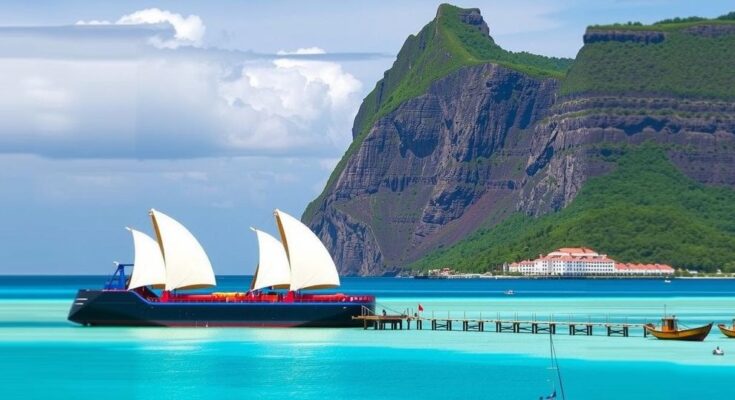Mauritius is renegotiating its agreement with the U.K. regarding the Chagos Islands, initially established in October, as the new administration seeks greater benefits. The agreement faces significant opposition from the Chagossian community, who feel sidelined in discussions and are demanding the right to return. A joint commitment to finalize a treaty has been made, yet the future of the Chagossians and marine areas remains uncertain.
Mauritius has initiated a renegotiation of its agreement with the U.K. regarding the contentious Chagos Islands in the Indian Ocean, following the appointment of Prime Minister Navin Ramgoolam after recent elections. The original proposal, formulated in October, lacked formalization into a treaty and has been deemed inadequate by the new administration, which seeks more substantial benefits for the nation. The ongoing dispute centers around Chagos, previously part of Mauritius but controversially ceded to British control in 1965, leading to significant human rights concerns including the expulsion of the local Chagossian population during the establishment of a U.S. military base on Diego Garcia.
Since gaining independence in 1968, Mauritius has engaged in legal battles to regain sovereignty over the Chagos Islands, culminating in a favorable advisory opinion from the International Court of Justice in 2019. However, the U.K. maintained its stance until recently, when it announced plans to transfer sovereignty of Chagos to Mauritius while ensuring control over Diego Garcia for military operations for an extended time period. This arrangement has led to dissatisfaction among Chagossians, who feel excluded from negotiations affecting their homeland and denounce the transfer as a betrayal of their rights and interests, with calls for the deal to be re-evaluated.
The implications for the marine protected area established by the U.K. in 2010 are also under scrutiny, as critics argue that its creation was an attempt to prevent Chagossians from using their traditional fishing grounds. The recent joint statement from both governments indicates a commitment to rapidly conclude a treaty clarifying sovereignty and operational terms for Diego Garcia, affirming the complexity and sensitivity surrounding the issue.
In summary, the situation regarding the Chagos Islands remains fluid, with Mauritius seeking to reassess its agreement with the U.K. amid strong opposition from Chagossians and uncertainty regarding the future of their affected community, along with environmental considerations.
The Chagos Islands, a group of over 55 coral islands, were part of Mauritius until the U.K. established control in 1965, facilitating the creation of a U.S. military base on Diego Garcia. The Chagossian people, who were forcibly removed from their land to enable this military presence, have been fighting for reparations and the right to return. The International Court of Justice’s advisory opinion in 2019 regarding Mauritius’ claim to Chagos has sparked renewed discussions, although the U.K.’s reluctance to fully relinquish control poses ongoing challenges.
The negotiations surrounding the Chagos Islands represent a complex interplay of sovereignty, human rights, and geopolitical interests. As Mauritius embarks on renegotiating its agreement with the U.K., the perspectives of the Chagossian population must be acknowledged and incorporated into future discussions. The outcome of these negotiations will significantly impact both the sovereignty of Mauritius and the rights of the displaced Chagossians, marking a critical moment in this protracted dispute.
Original Source: news.mongabay.com




